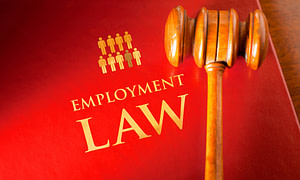In Australia, overtime pay and the definition of "reasonable overtime" can vary due to various factors, including the industry, the specific job, and any relevant awards or employment agreements. However, there are some general guidelines to consider.
Modern awards & enterprise agreements
Many employees in Australia are covered by Modern Awards or Enterprise Agreements, which go over the terms and conditions of employment, including overtime rates and what constitutes reasonable overtime. These agreements can vary widely across different industries and jobs.
Overtime rates
Overtime rates usually apply when an employee works beyond their standard hours, which are usually 38 hours per week for full-time employees. These rates are often higher than the usual hourly rate, and they can vary due to the award or agreement. For example, overtime pay may be at 1.5 times or 2 times the usual rate.
Reasonable overtime
What is thought to be "reasonable overtime" can also depend on the specific circumstances and the relevant award or agreement. It is necessary work that is within the award or agreement limit. Employers should consult with employees and consider their individual circumstances when asking for overtime.
Maximum weekly hours
In some cases, awards and agreements may specify the maximum number of weekly hours an employee can work, including overtime. This is to prevent undue working hours and ensure work-life balance.
Annual salary & overtime
For employees on a salary, the concept of overtime can be a bit different. Some employees on a salary might not receive extra pay for overtime hours but may receive other benefits, such as time off in lieu (TOIL) or a higher base salary that factors in expected overtime.
It's important to check your specific award or employment agreement to understand your rights regarding overtime. Employers and employees should also have open communication about expected overtime and try to reach a mutual agreement whenever possible.
Additionally, it's worth noting that workplace laws and regulations can change over time, so it's advisable to consult the Fair Work Commission or a legal professional for the most up-to-date and accurate information regarding overtime in Australia.
To learn more about Australia's employment guidelines, click the button below to read our article on national employment standards.





















